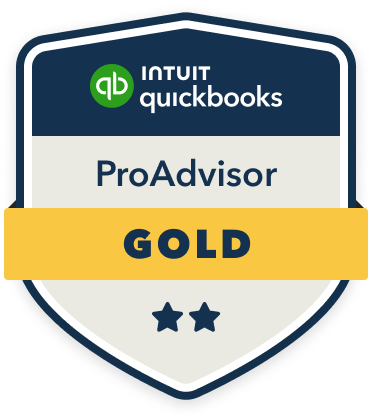Many small business owners believe their CPA already acts as their CFO, but while both roles are crucial, they serve distinct and complementary purposes. A CPA ensures your business stays compliant and minimizes tax liabilities, but a fractional CFO delivers the strategic insight needed to drive growth, manage risk, and plan for the future.
Strategic vs. Compliance: The Core Distinction
A CPA (Certified Public Accountant) is your go-to for tax preparation, regulatory compliance, and accurate financial reporting. Their expertise keeps your books in order and your filings up to date. But when it comes to forward-looking decisions—such as whether to expand, how to improve cash flow, or how to prepare for investor scrutiny—a CPA’s role is primarily historical and compliance-based.
A fractional CFO steps in as a strategic partner. They provide financial forecasting, scenario planning, fundraising strategies, and margin analysis that go far beyond tax advice. This isn’t about more paperwork; it’s about transforming your financial data into actionable strategies for sustainable growth.
As one seasoned advisor puts it: “Most business owners worry about cash flow, growth, and how to make their business more valuable. It’s not just about surviving tax season; it’s about building a business that thrives year-round.”
Breaking Down the Roles: A Practical Comparison
| Role | Focus | Typical Activities |
|---|---|---|
| CPA | Compliance, taxes, reporting | Tax returns, audits, regulatory filings, bookkeeping |
| Fractional CFO | Strategy, planning, leadership | Forecasting, cash flow management, fundraising, growth |
Your CPA is there to keep you out of trouble with the IRS and ensure your numbers add up. But your fractional CFO helps you answer questions like:
- Can I afford to hire more staff this quarter?
- How do I prepare for a funding round or bank loan?
- What’s my real runway if sales slow down?
- Where are my profit leaks, and how do I plug them?
Challenging the Belief: “My Accountant Already Acts Like a CFO”
It’s a common misconception that a diligent CPA can fill the CFO gap. While they can offer some advice, their training and day-to-day focus are different:
- CPAs look backwards: They analyze last year’s numbers and ensure compliance.
- Fractional CFOs look forwards: They use that financial history to build forecasts, create models for growth, and challenge you to think bigger.
For example, a CPA might tell you last year’s profit margin. A fractional CFO will model how changes in pricing, staffing, or supplier contracts could improve that margin next year—and help you implement those changes.
When Should You Bring On a Fractional CFO?
If your business is facing any of these scenarios, it’s time to look beyond tax advice:
- Rapid growth or plans to scale
- Burn rate over $30k/month
- Preparing for funding rounds or loan applications
- Need for budgeting, forecasting, or scenario planning
- Complex decisions around pricing or expansion
Hiring a full-time CFO may be out of reach for many small businesses and startups. That’s where the fractional model shines: you get executive-level insight and leadership at a fraction of the cost, scaled to your needs.
How a Fractional CFO or QuickBooks ProAdvisor Can Help
A fractional CFO isn’t just a numbers person—they act as an advisor, strategist, and sometimes even a sounding board for tough business calls. They’ll work with your CPA to ensure compliance, but their real value is helping you:
- Build financial models that attract investors
- Proactively manage cash flow to avoid surprises
- Develop strategies for sustainable, profitable growth
- Communicate financials more effectively to your board or partners
A QuickBooks ProAdvisor can further streamline your processes, ensuring your data is accurate and accessible. This sets the foundation for deeper analysis and strategic planning by your CFO.
Seeing the Difference: Clarity in Your Advisory Circle
Imagine your advisory team as a relay race:
- Your bookkeeper keeps the baton moving daily, recording every transaction.
- Your CPA makes sure you don’t drop the baton at tax time or during audits.
- Your fractional CFO strategizes the route, ensuring you cross the finish line first.
Each plays a critical role, but only the CFO looks ahead, mapping the course and helping you avoid obstacles before they become crises.
A Final Thought
Small business owners often feel overwhelmed by the financial unknowns. The right support can bring peace of mind and a clear path forward. As one expert notes, “Business owners should focus on running their business, not running their books. With the right team—CPAs for compliance and fractional CFOs for strategy—you’re not just filing taxes, you’re building a legacy.”
If you’re ready to move from reactive bookkeeping to proactive growth, consider adding a fractional CFO or a QuickBooks ProAdvisor to your team. The clarity and strategic advantage you gain can make all the difference—not just at tax time, but all year round.





